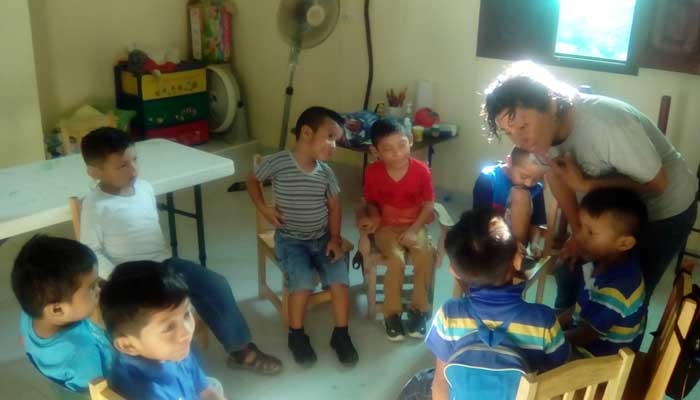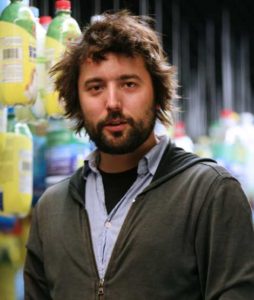TERRACYCLE NEWS
ELIMINATING THE IDEA OF WASTE®
Trending: Coors, City of London Put Waste to Work with New Recycling Schemes
Trending: Coors, City of London Put Waste to Work with New Recycling Schemes
Virginia legislature considers bill to classify cigarette butts as litter
- The Virginia General Assembly is considering a bill with bipartisan sponsorship that would classify cigarette butts as litter in the state's code, as reported by the Associated Press.
- Delegate Jackson Miller, one of the bill's co-sponsors, said this is based on his experiences as a former police officer. Miller has seen judges dismiss tickets for littering because they don't believe cigarette butts count.
- The bill was passed by a House committee on Jan. 25 and would require passage by the full House and the Senate before coming to Governor Terry McAuliffe for a signature.
Head & Shoulders' New Packaging is Made with Plastic from Beaches
We helped create the world’s first recyclable shampoo bottle made with beach plastic - here's why
LA NATURALEZA SE CONVIERTE EN LA FUERZA DE GARNIER PUERTO RICO
La marca presenta sus nuevas fórmulas para el 2017

Las frutas son reconocidas como símbolo de abundancia, salud y vida, convirtiéndolas en una de las creaciones más fascinantes de la naturaleza. Garnier Puerto Rico reconoce sus nutrientes y activos potentes incluyendo muchas súper frutas e ingredientes sustentables en sus nuevas fórmulas de una manera responsable y ética. El moderno espacio de Lote 23 se convirtió en el escenario en donde los medios, blogueros e influencers del país conocieron por qué la marca se proclama #FuertePorNaturaleza a través de las experiencias que incluyó el evento.
Garnier reconoce la vitalidad de incluir ingredientes de la naturaleza en los productos que colocamos en nuestro cuerpo, al seleccionar cuidadosamente e incluir las súper frutas más nutritivas y beneficiosas en su línea principal de cuidado del cabello, Fructis. Entre estos frutos se destacan nuevos ingredientes como: el fruto de açaí, que revitaliza el color, las manzanas verdes, que restauran el cabello quebradizo, el pepino fresco que purifica el cuero cabelludo con una limpieza profunda y el agua de cactus, que provee una hidratación extrema al cabello seco. Además, la nueva fórmula es libre de parabenos, para un trato gentil al cabello, y contempla un cúmulo de vitaminas y nutrientes tales como: ácido cítrico, vitaminas B3 y B6, entre otros.

Para lograr la integración de estos frutos e ingredientes en sus nuevas fórmulas, Garnier ha desarrollado alianzas responsables y sustentables con suplidores de comercio justo a través de todo el mundo. Por ejemplo, el aceite de oliva prensado del nuevo módulo Legendary Olives de Whole Blends, proviene de Italia mientras que las nueces de Argán de Marruecos se utilizan para la línea de cuidado de la piel, Clearly Brighter y el aceite extraído de estas se integra en el módulo Moroccan Argan & Camelia Oils de Whole Blends.
Por otro lado, el compromiso ético de Garnier ha permitido que la marca revolucione el mercado convirtiéndose en pioneros en conservación ambiental al producir sus empaques en facilidades comprometidas con la sustentabilidad; en donde logran modificar estos empaques con un 30-50% de plástico PET reciclado que es 100% reciclable. A nivel mundial, Garnier mantiene asociaciones importantes con organizaciones como Terracycle, lo cual convierte a Garnier en la primera compañía en el mundo en proveer una solución integral para el desperdicio de empaques de belleza y cuidado personal.

Para conocer las innovaciones de la marca, los presentes disfrutaron de una experiencia sensorial completa mediante las estaciones que invitaban a oler y sentir la esencia de los nuevos productos. “Garnier siempre se ha destacado por su combinación de ingredientes naturales con olores que te transportan y conectan a la naturaleza. Es por esto que decidimos llevar acabo un evento que reflejara el mensaje principal de la marca de respetar la naturaleza y a la vez fuera ameno y sumamente interactivo para nuestros invitados mientras conocen de nuestras innovaciones”, comentó la gerente de marca, Isabel Menéndez.
La música de DJ Rosamalia y Almas Band dio pie a un ambiente relajado y tropical mientras otras estaciones interactivas permitían a los asistentes jugar, conocer acerca del reciclaje de los productos Garnier con Basura Cero, escribir qué los hace fuertes por naturaleza en una pared de expresión, disfrutar del arte en vivo del talento local, y deleitar su paladar de un menú inspirado en los ingredientes principales Fructis y Whole Blends, tales como las moras frescas en los cocteles y la infusión de coco en la propuesta de Wok It.
Niños con discapacidad se benefician gracias al reciclaje

Más de un millón de bolsas de botanas fueron recolectadas por la comunidad logrando recaudar $80,597.50 pesos
Mérida Yucatán a 26 de enenro 2017.- El centro de desarrollo integral “Enseñando a caminar por la vida A.C.” (ENCAVI) ubicado en la ciudad de Merida, está especializado en enseñar a los niños con discapacidad a desenvolverse en diversas actividades cotidianas, las cuales se realizan en un ambiente sano, seguro y procurando mejoren la calidad de vida de los beneficiados. Además, les enseña valores tan importantes como lo es el cuidado al medio ambiente.
Desde hace unos años, el ENCAVI, comprometido con el medio ambiente, ha decidido realizar campañas y convenios con los padres de familia para recolectar las bolsas de botana que se consumían. El centro de desarrollo Integral con la ayuda de TerraCycle México y su idea de eliminar la basura a través de su programa de reciclaje de bolsas de botanas, encabezó una serie de campañas y convenios en apoyo con los padres de familia, que consistían en recolectar dichas envolturas. El compromiso se hizo presente tanto en los administrativos como en los padres de familia, ya que el resultado de estas acciones se vió reflejada en las 1,611,950 bolsas de botana que fueron recolectadas hasta Diciembre del pasado año. La basura se juntaba en una bodega donde se almacenaba, emplayaba y se enviaban para ser recicladas por TerraCycle quien recibe la basura entregando puntos por la misma.
La recolección de basura de los últimos 6 meses juntó suficientes puntos para recaudar la suma de $80,597.50, la cual será destinada a la mejora de las instalaciones y compra de material para uso de los beneficiarios.
Aunque se han logrado resultados positivos tanto para los grupos vulnerables como para el planeta en las campañas de recolección, es necesario que más personas participen en estos programas para fomentar la cultura del reciclaje y cuidado del medio ambiente, así como ayudar a muchas otras personas que carecen de los recursos económicos para adquirir bienes básicos para su calidad de vida, para esto también existen más programas de reciclaje como lo son de productos de cuidado bucal, de jabones, bolsas de galletas, envolturas de pan y pan dulce, estos programas son totalmente gratuitos para los interesados en recolectar su basura y beneficiar a diferentes asociaciones sin fines de lucro.
4 Formas De Reciclar Tus Productos De Belleza
Nos consideramos unas adictas de los productos de belleza! Siempre estamos comprando nuevos shampoos, labiales, rubores y lápices de ojos que se van acumulando para luego ser tirados en el tacho de la basura, y esto obviamente nos hace sentir súper culpables. Y como sabemos que una de tus principales resoluciones de este año es comenzar a reciclar, hoy te enseñaremos estas cinco maneras de reutilizar tus productos de belleza siendo amable con el medio ambiente.
¿Estás lista para dejar una huella ecológica?
Devuelve tus envases MAC

La marca de productos MAC tiene un programa llamado Back-to-MAC que consiste en la devolución de seis envases de productos vacíos a cambio de un labial a elección. Así que si tu eres una gran fan de estos productos, no se te ocurra tirar los envases vacíos al basurero.
Envía tus envases a Orígenes

Orígenes es una empresa amigable con el medio ambiente que recicla envases de belleza vacíos de cualquier marca, creando nuevos productos que ayudan a reducir la cantidad de residuos en el mundo.
Elige productos que se puedan reciclar

Cuando compres shampoo o bálsamo, trata de elegir siempre las botellas que estén hechas de Polietileno de baja densidad (por lo general son los más baratos), un plástico mas delgado que se pueden reciclar sin problema en cualquier punto de reciclaje local.
Envía tus productos vacíos a Terracycle

Limpia tus envases vacíos y envíalos de forma gratuita a Terracycle, una empresa que destina la mayor parte de sus ganancias de reciclaje a distintas organizaciones benéficas.
Recycling program benefits children with disabilities
 “Enseñando a caminar por la vida A.C.” (ENCAVI) earned over 80,000 pesos from a recycling program. Photo: Courtesy[/caption]
“Enseñando a caminar por la vida A.C.” (ENCAVI) earned over 80,000 pesos from a recycling program. Photo: Courtesy[/caption]
Mérida, Yucatán — When more than a million used snack bags were sent away to be recycled, more than 80,000 pesos came back to help local children with disabilities.
The collection drive was centered at Teaching to Walk for Life, the apt name for a program that helps guide children to perform various daily activities.
Known here as “Enseñando a caminar por la vida A.C.,” or ENCAVI, the teaching center also instills on kids values such as caring for the environment.
One environmentally focused campaign at ENCAVI is in cooperation with parents who help collect used plastic snack bags for recycling. With the help of the international recycling company TerraCycle Mexico and its focus on eliminating waste.
The administration and parents cooperated to collect exactly 1,611,950 old snack packaging in six months. The garbage was stored in a warehouse and sent to be recycled by TerraCycle.
The accumulated trash became a treasure, raising ENCAVI 80,597.50 pesos under TerraCycle’s points system. Earnings will be used to improve their facilities and purchase materials.
Trenton, N.J.-based TerraCycle has offices in Europe, Asia and South America; in Mexico, they operate out of Monterrey. Programs like this run in 20 countries.
TerraCycle’s national recycling system in Mexico tackles so-called “non-recyclable” or “difficult to recycle” materials, such as snack wrappers. The company calls itself “one of the world’s leaders in eco-capitalism and the reuse of non-recyclable, pre and post-consumer waste.”
[caption id="" align="alignleft" width="254"] Tom Szaky, founder of TerraCycle[/caption]
Tom Szaky, founder of TerraCycle[/caption]
Founder Tom Szaky was born in Budapest, Hungary in 1982, but while he was still a child his family emigrated as political refugees to the Netherlands and eventually to Toronto. Szaky entered Princeton University in 2001, but the next year he took a leave of absence to dedicate himself full-time to growing TerraCycle, which began as a two-man outfit in a dorm room.
TerraCycle’s breakthrough came in 2004, when Home Depot and Walmart started selling its little-known “worm-poop” fertilizer. In 2006, Inc. Magazine named TerraCycle “The Coolest Little Start-Up in America.”
In exchange for certain types of garbage, TerraCycle provides a cumulative economic incentive which is donated to non-profit organizations. To participate, visit www.terracycle.com.mx or call 01 800 681 1589.
